Welcome to our Mentors page! Information on this page will be updated regularly.
How does it work?
- Launchpad in-person attendees will benefit from a double-pairing mentorship program from April to December.
- Two graduate student or postdoctoral mentors from UBC will be paired with two mentees.
- The mentors will provide guidance on the choice of the laboratory for spending an afternoon in the lab. They will also create networks with other grad students, Faculty and members of affinity groups (such as community networks, student clubs, committees, SAGE – Supporting Aboriginal Graduate Enhancement, and indigenous units) at UBC and will offer personalized feedback and advice on how to prepare the graduate application materials.
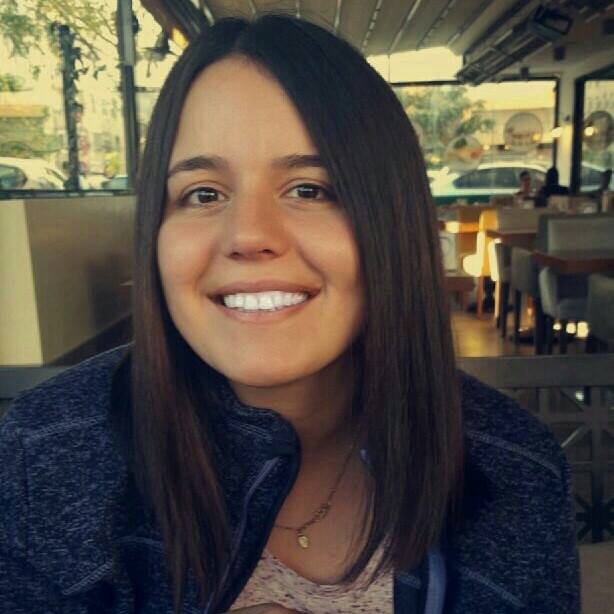
Demet Kirmizibayrak
I am a PhD Candidate in Physics working on the astrophysics of compact objects, most usually black holes and magnetars. I look at observations, work on theoretical modelling and develop new methodologies to probe mysteries about these objects.
What was the best surprise about UBC or life in Vancouver?
The colours in the fall! The nature here is truly spectacular, and the trees dress up in a vibrant spectrum of reds and oranges in the fall. It’s a truly beautiful experience 🙂
How you spend your free time in Vancouver?
I like to pursue many hobbies and explore different curiosities. In my free time, people usually find me playing volleyball with friends or playing the ukulele. If not, I may be at an art gallery or painting/drawing something myself, taking a nature/beach walk, watching a nice movie or learning about something new!
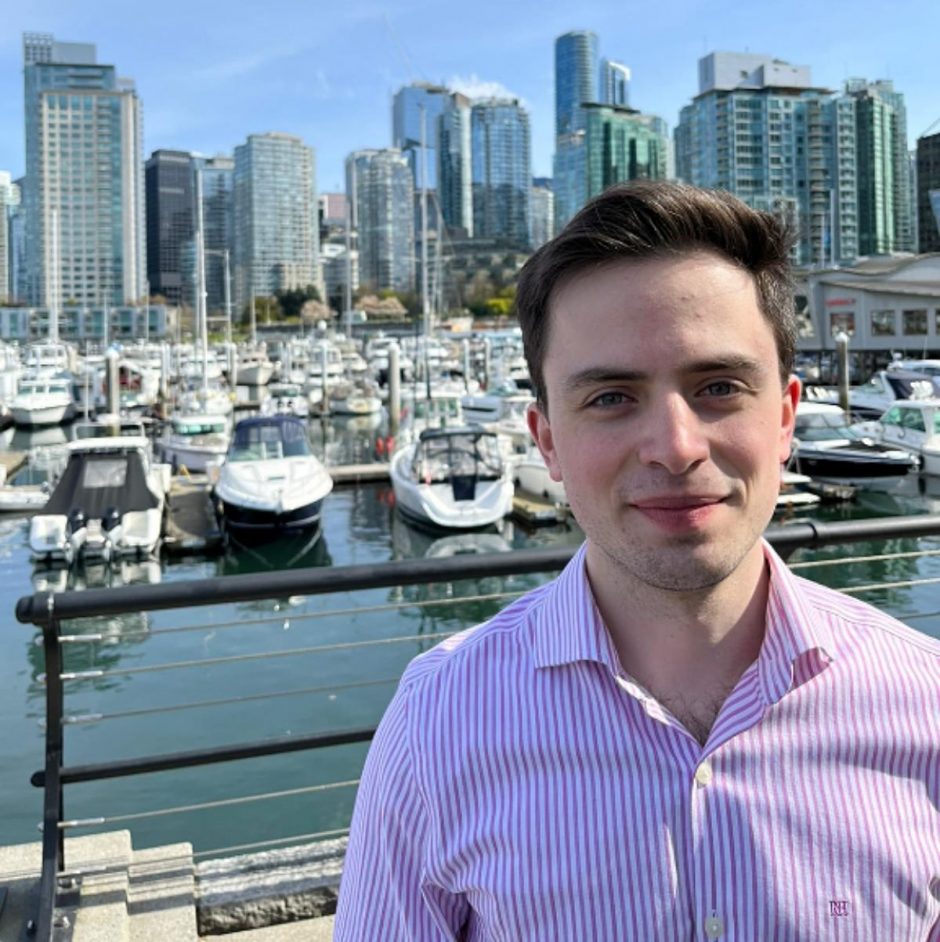
Pedro Villalba González
I am a first year Physics MSc student in the Observational Cosmology group at UBC. I graduated from the University of Granada, Spain, in 2021, where I worked on General Relativity and Condensed Matter Physics during the last two years of my BSc. I am working on The Canadian Galactic Emission Mapper (CGEM), a radio telescope that will be located at the Dominion Radio Astrophysical Observatory near Penticton, British Columbia. CGEM is part of the effort to probe the first moments in the history of the universe. It will map polarization in the northern sky at a frequency of 10 GHz. The maps produced, along with measurements at higher frequencies will help us search for gravitational radiation coming from the first instants of the universe.
Why did you decide to pursue a graduate degree?
When I finished my undergraduate studies, I felt like I knew ‘a bit of everything, but nothing at all’ at the same time. Pursuing a Master’s degree, to be followed by a PhD, sounded like the natural path to follow if I wanted to expand on my knowledge of the universe. In any case, I walked into grad school thinking on conducting research in particle physics, but after talking to my current supervisor and hearing about CGEM I decided I wanted to be a cosmologist! A piece of advice: keep your mind open when it comes to research. You might find your path in something you would have never considered before!
What has surprised you the most about life at UBC/in Vancouver?
Apart from the stunning views and the great wildlife in Vancouver, the big surprise for me was how much I enjoy the people I work with! I am very lucky to have an amazing supervisor and an outstanding team that has been very supporting through my first-year experience and any difficulty that I have had to face. Moreover, every day in the lab feels like attending a ‘hands-on’ masterclass, in which I am learning not only from the scientists in my group, but also from everyone at the lab. In addition, being a TA and getting involved in teaching undergraduate classes for the first time has awakened in me a vocation in teaching!
Why did you choose UBC?
My case is a bit special, during the third year of my undergraduate studies I had the chance of coming to UBC on exchange. While being here I could connect with different faculty and see all the opportunities the department had to offer. I really liked the way that teaching (TAs) and research are organized here. Students have their hands-on projects since day one, which I have not found to be common among other programs. Also, I found Canada, and specially Vancouver to be a welcoming place to foreigners!
What do you do in your free time?
Apart from seeing my friends and trying new food spots off-campus, I try to keep myself active. There are many options on campus for this, two fitness centres, the Aquatic Centre and different tennis courts are just a few examples. I have made myself the promise of trying one of these options every morning (although I must confess I don’t always succeed!).
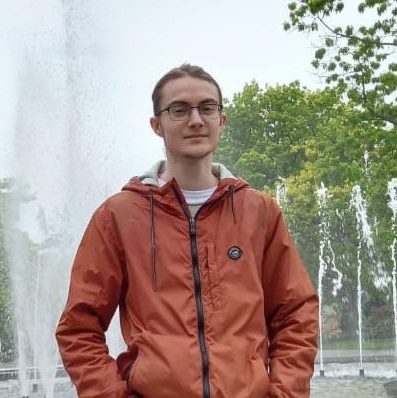
Alan Knee
I am a first year PhD student, working in the gravitational-wave astrophysics group at UBC. Gravitational-wave astronomy is a relatively young field, and there is so much interesting stuff to work on. So far, I’ve done a lot of work on studying the gravitational waves of coalescing compact binary systems (e.g. pairs of colliding black holes and neutron stars) using ground-based detectors like LIGO. I am also getting involved with developing search methods for LISA, which is a proposed space-based detector that will be able to see an entirely new range of gravitational-wave sources that are invisible to LIGO.
Why did you want to go to grad school?
I think there are few things more fulfilling than being able to work on the frontiers of human knowledge. Graduate research gives me an opportunity to contribute, small as it may be, to our overall understanding of the cosmos.
Why UBC?
One of the things about graduate studies at UBC is that there is a lot of flexibility in getting to choose what research you want to do. You are really encouraged to speak to everyone in the department to get a feel for what interests you most, whereas other institutions might assign you a research project before your program has even started.
What are your impressions of UBC/life in Vancouver?
The UBC campus is enormous! I think even now I still haven’t managed to explore everything, and it is continuing to expand with new buildings going up every year. Vancouver is also a great city, and there is a wide range of environments ranging from a vibrant urban core to quieter neighbourhoods, and lots of nature/scenery all located within a relatively small and well-connected area.
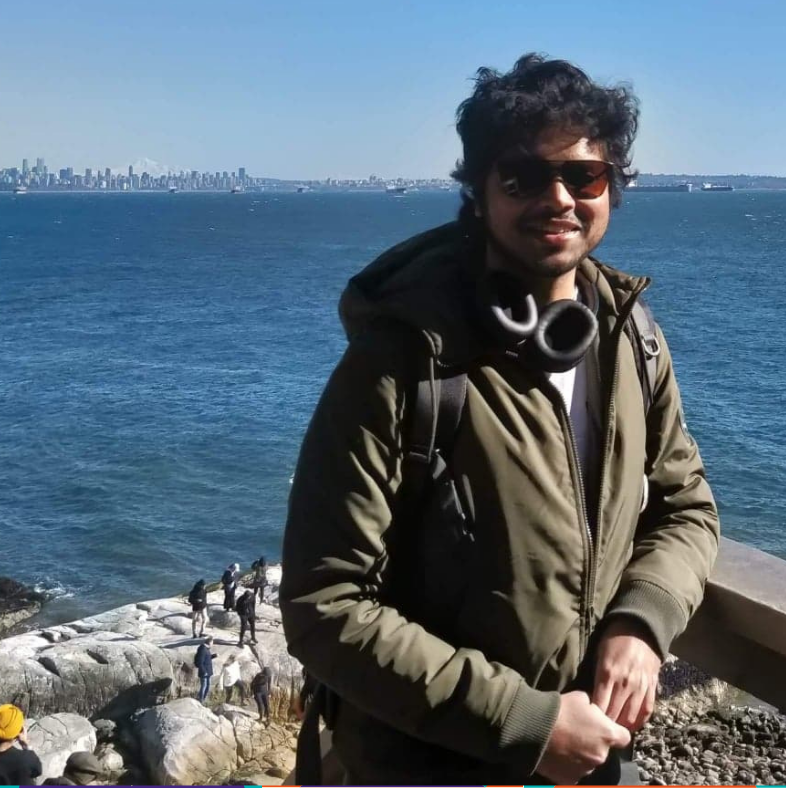
Shovon Biswas
Hi, I am a first-year Ph.D. student trying to understand some aspects of quantum gravity. To do this, I rely on theoretical methods developed in the contexts of quantum field theory, string theory, and sometimes quantum information.
What made you want to pursue a graduate degree?
I studied electrical engineering as an undergraduate. While I thoroughly enjoyed the journey, I also realized that I wanted to learn more about the foundations. Eventually, I convinced myself that pursuing a graduate degree in theoretical physics would be the best way to do this.
What has surprised you the most about Vancouver?
I did not expect Vancouver to be this beautiful. I knew that it was nice and all, but it has surpassed my imagination.
What do you like to do in your free time?
If not sleeping, I mostly go for leisurely walks on one of the beautiful beaches, and parks or wander around downtown.
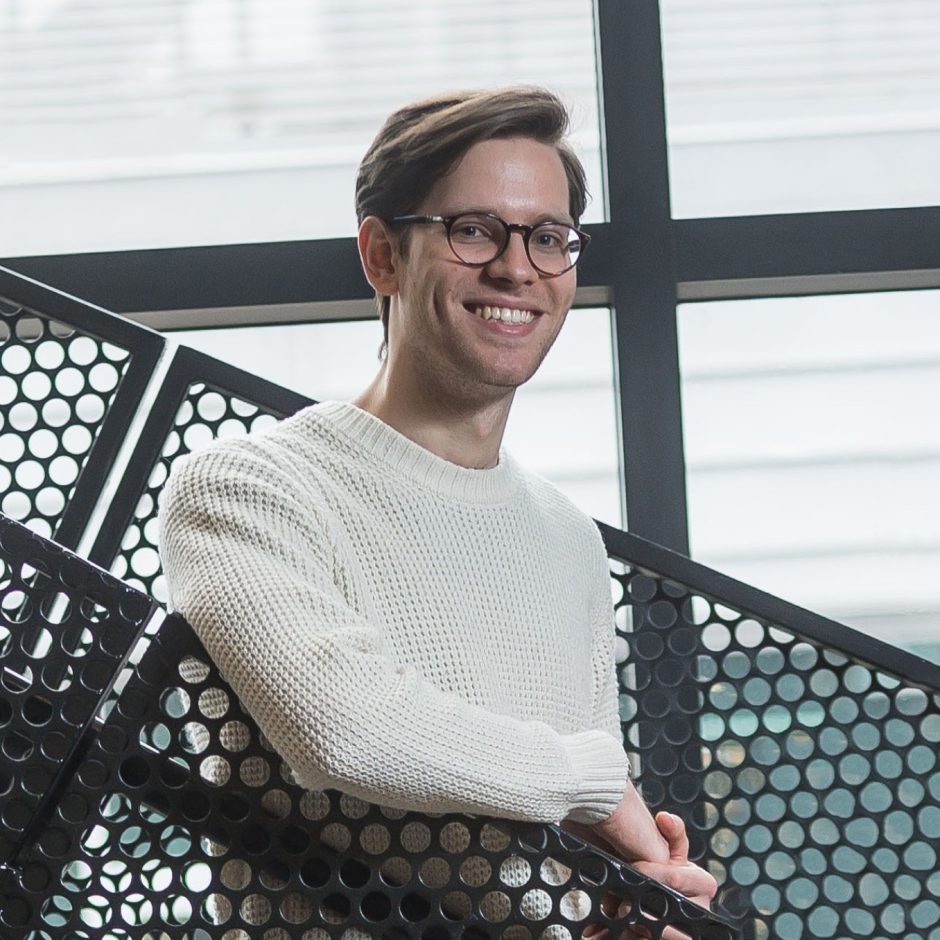
Stepan Fomichev
Being part of the condensed matter theory stream, I am intensely interested in emergent behaviour in systems composed of many interacting parts. I study the interaction between electrons and lattice ions in solids — called electron-phonon coupling — especially in transition metal oxides and perovskites (nickelates, bismuthates). This interaction is responsible for many of the coolest material behaviours we know, such as superconductivity, magnetoresistance, and polaron formation. On a day-to-day basis, I study Hamiltonian models of materials with electron-phonon coupling, by writing down equations and programs to find ground states, energies, spectral functions, phonon dispersions, effective masses and other properties of interest.
How do you spend your free time in Vancouver?
I like long distance biking, camping, kayaking, sailing, and hiking. I also enjoy going to concerts, sampling new creations at many of Vancouver’s independent breweries and meeting new people to learn about what they are working on.
Do you incorporate science into your life?
I have tried my fair share of productivity hacks and science-based “optimization” of whatever daily task I’m doing. But often I have to remind myself that science is not the only way of knowing, or doing things.
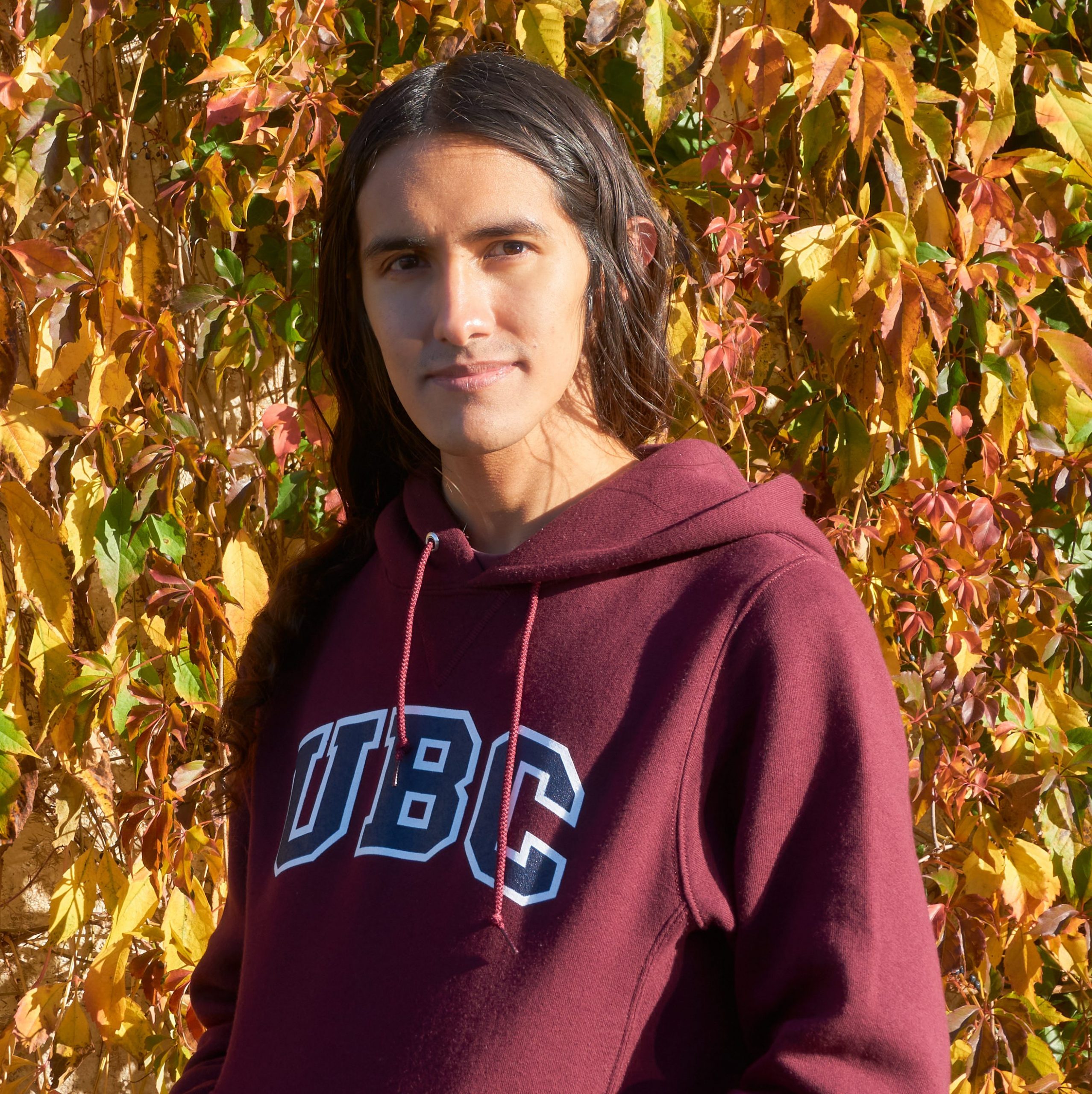
Mario Ulises Gonzalez Rivas
I am a first-year PhD student in Alannah Hallas’s Group at the Stewart Blusson Quantum Matter Institute at UBC, so my work falls under the umbrella of Condensed Matter Physics. I did my undergrad in Nanotechnology Engineering at ITESO, and a master’s in Materials Science at Universidad de Guadalajara, both in Mexico. My PhD research focuses on the physics underlying high entropy oxides. These are systems where one deliberately introduces configurational disorder (i.e. entropy) into a crystalline oxide by forcing five or more ions to share a lattice site. These materials’ properties often behave nonlinearly with respect to composition, with synergic effects often playing a role. We are currently trying to understand the role disorder plays in these materials, and particularly how it affects their magnetic properties.
Why did you choose to study at UBC?
The presence of QMI makes UBC one of the best places to do graduate studies in Condensed Matter Physics. It fosters an interdisciplinary, collaborative environment that I didn’t see in any of my other options and promotes amazing research. I have a non-traditional background for a Physics PhD student, so being surrounded by such a breadth of disciplines allows me to develop and take advantage of my skills to the fullest. Most importantly, I have a fantastic advisor in Alannah who cares a lot about her students and has an interdisciplinary background, too, so her guidance on this front is invaluable. Finally, it does not hurt that Vancouver is such a wonderful place to live!
How do you spend your free time in Vancouver?
I like to stay active, typically playing basketball either on or off-campus. My fiancée and our dog will be moving to Vancouver this fall, so I’m probably going to change pick-up games for runs and walks with them (he is a very demanding dog!). I also like to do photography in my spare time whenever weather permits, with Vancouver providing a beautiful canvas of breathtaking scenery year-round. Otherwise, I am a huge Swiftie, so I will often listen to one of Taylor Swift’s albums – Lover is one of my favourites.
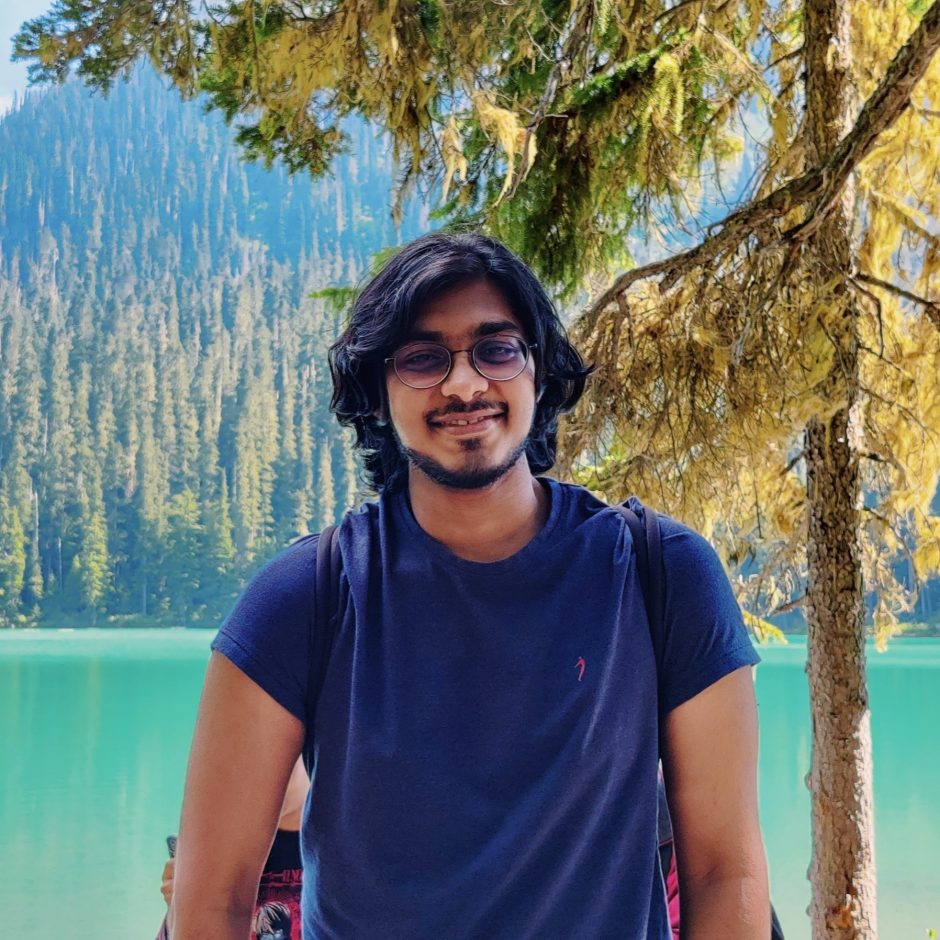
Abhisek Sahu
Hi, I am Abhisek, and I am a second year Master’s student studying theoretical physics. I grew up in India where I finished my high school and undergraduate degree in Engineering physics and eventually ended up here to explore my academic interests.
In particular, I am interested in quantum gravity and the role of quantum information in gravity. This involves answering questions such as: “Is information really lost when stuff lands up inside black holes?”, “Can we somehow reconstruct the interior of black holes?”, “How do we make sense of the quantum nature of the big bang or the singularity at the center of a black hole”, etc. I have always been attracted to such fundamental questions about the universe and that attracted me to UBC, which houses a vibrant quantum gravity group with some leading faculties and post-doctoral researchers in this field.
What do you do in your free time?
When I am not thinking about existential questions, I enjoy nature in and around Vancouver by walking, hiking, playing cricket with my friends or simply reading my favourite books at the beach. Unless it is raining (which it does quite a bit 🙂 ), in which case I channel my creativity to create some culinary delights. I am also passionate about spreading my love for physics and making it more accessible through scientific outreach.
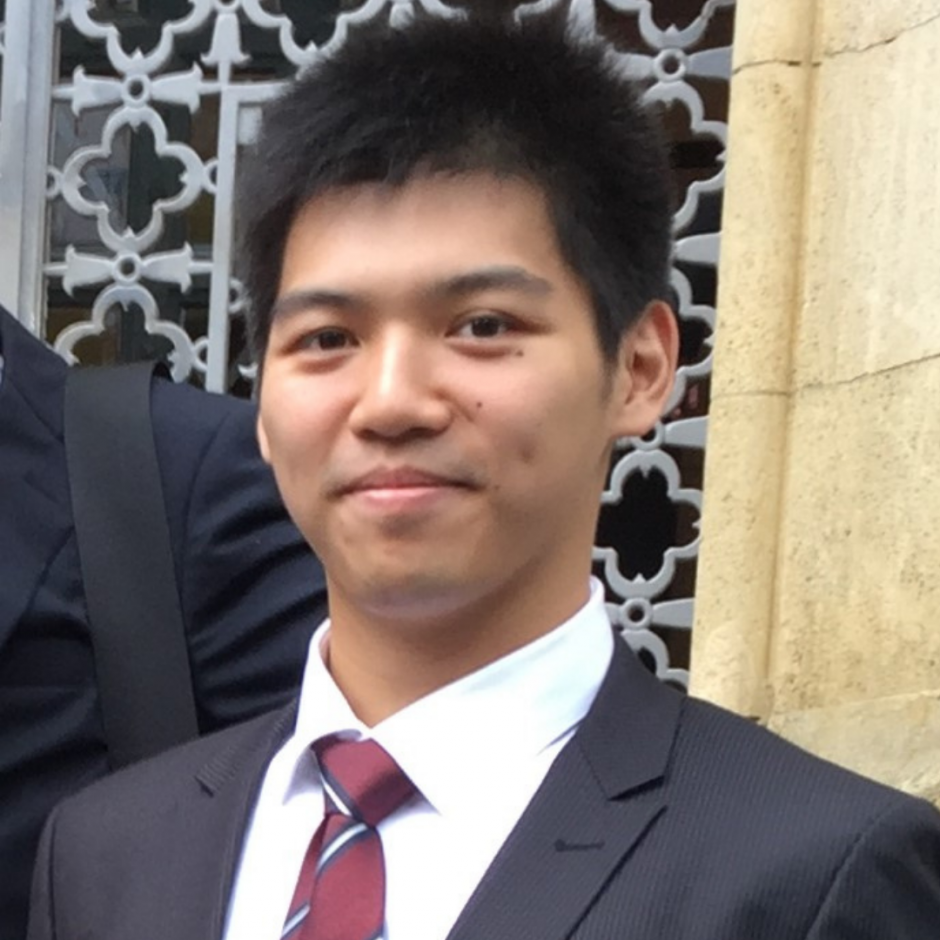
Pompey Leung
I am a 2nd year graduate student working on the interface between quantum gravity and quantum information theory. My current research focuses on understanding quantum aspects of black holes and cosmology. Before coming to UBC, I completed an undergraduate and master’s degree at Waseda University in Tokyo, Japan. There, I worked on connecting string theory to the Standard Model of particle physics through investigating certain models of string compactification.
Why did you decide to pursue a graduate degree?
During my master’s degree in Japan, I attended a few conferences where I got the chance to present my work in short-talk and poster formats. It was at these conferences that I got to witness first-hand how the high energy theory community progressed collectively at large. Through these conferences, I realized how drawn I was to the social aspect of theoretical physics research – theorists spend a surprising amount of time talking to each other! I decided to pursue a graduate degree at UBC so that I could be a part of the physics community’s collective efforts in pushing the boundaries of human knowledge.
Something that no-one would guess about you…
Japan is not a common higher education destination for international students from Hong Kong like me. Studying physics was not the main reason for choosing to attend a Japanese university for my undergraduate education. Instead, I decided to go to Japan so that I could learn classical Japanese martial arts from a school with a lineage that stretches back 600 years to the Warring States period of Japan. As a result, I spent 8 years training under this school to become a somewhat proficient swordsman.
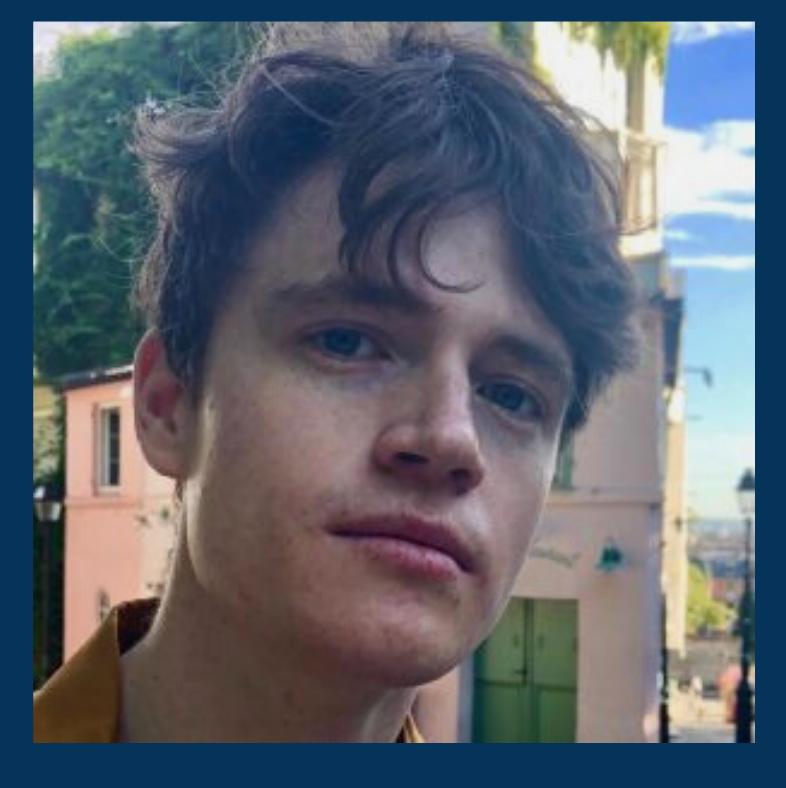
Jonah Berean-Dutcher
I’m an MSc student studying string theory. I did my undergraduate degree at UBC as well, and in my third year I had the opportunity to do a co-op work term with a research group at TRIUMF, right next to the UBC campus. I worked on an experiment that studied nuclear structure, and I found that the work environment was positive and supportive for students. For me, deciding to study physics and pursue a graduate degree, has been largely about finding good people to work with; people that are enthusiastic about physics and that serve as supportive mentors. I was fortunate enough to find that at TRIUMF, and I’ve also found that as a graduate student at UBC.
What do you do in your free time?
I spend my free time hiking around Vancouver, and I’ve recently taken up surfing. I enjoy the outdoors in general, and UBC is a great place to study and be able to spend plenty of time outside in the nearby wilderness.
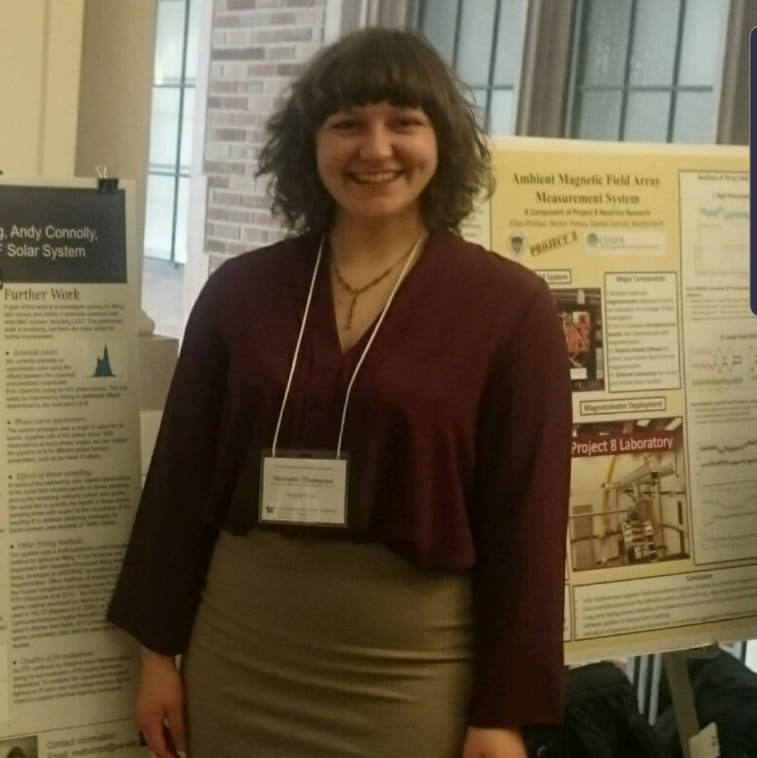
Mercedes Thompson
I’ve worked in spectroscopy for the last roughly five years.
Spectroscopy is an observation technique that captures the rainbow of light emitted by an object. With this data you can characterize the chemical composition, velocities, and many more properties of an object!
As an undergrad I was a member of a group that analyzed thousands of galaxy spectra. After graduation I worked as an observationalist in stellar spectroscopy where I operated telescopes to take observations of a type of variable star called a type II Cepheid. Now in graduate studies, I focus on the spectroscopy of distant galaxies in order to unravel what is causing galaxies to stop forming stars. Through these efforts, I hope to help uncover the vast histories of galaxies and how they evolve.
Why did you decide to pursue a graduate degree?
When deciding to pursue graduate studies I received this advice from my mentor: “Ask yourself, is there a topic in Astronomy you feel compelled to contribute to? If you left these discoveries to someone else would you be satisfied?”. After a great deal of self reflection, I found the answers to these questions. I felt compelled to add knowledge to the understanding of galaxy evolution, and at a later date if I found someone else had found the answers to the questions I had, I would feel like I had missed an opportunity in my life. With this personal understanding I felt dedicated to the pursuit of graduate studies and the study of galaxy evolution.
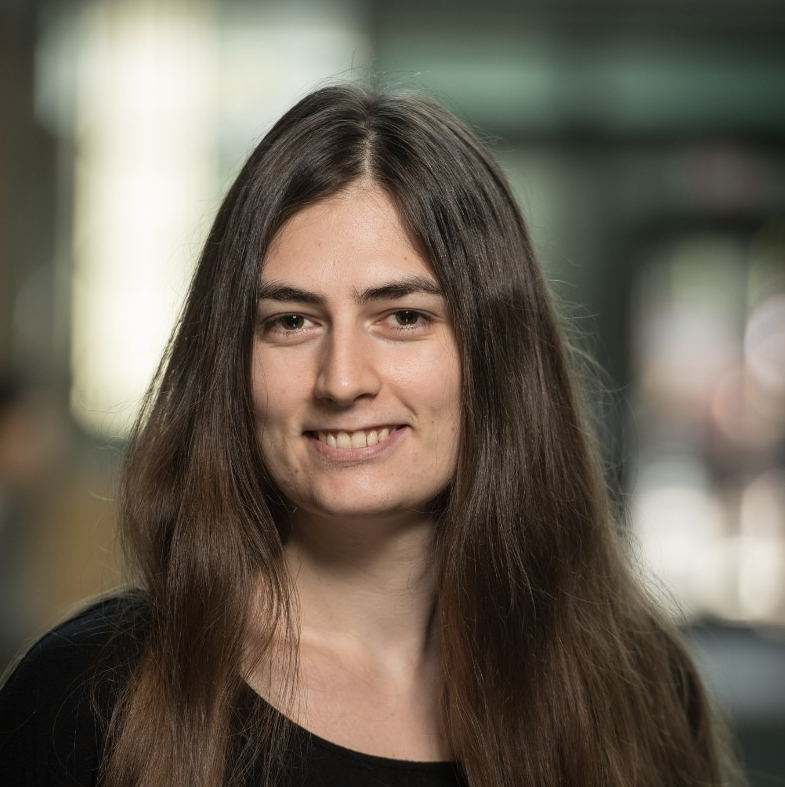
Leesa Fleury
I’m a PhD student in Physics working at the interface of astrophysics and particle physics. For my PhD work, I research various aspects of white dwarf cooling and have a particular interest in using observations of white dwarfs to test particle model explanations of dark matter and other physics beyond the standard model, especially axions. I also study the kinematics and cooling of ultramassive white dwarfs in the solar neighbourhood. My work consists primarily of a combination of performing numerical simulations of stellar evolution and analyzing observational data from missions such as Gaia and the Hubble Space Telescope.
What’s your academic background?
I have a BSc in Physics from the University and Western Ontario and an MSc in Physics from McGill University, where my MSc research was in the area of high energy phenomenology studying axion cosmology. Prior to my graduate work focusing on dark matter and white dwarfs, I did research in a diverse variety of fields including solar cell development and MRI physics.
Why did you choose UBC?
I chose to do my PhD at UBC because my research interests aligned closely with work that was being done in the department here. This decision was reinforced by how much I enjoyed the city of Vancouver when initially visiting, and I’ve continued to appreciate Vancouver while living here.
How do you like to spend your free time?
I spend most of my free time on artistic pursuits, working out, or hanging out with friends. I enjoy sketching and frequently attended life drawing sessions in Vancouver prior to the pandemic. I was also regularly doing judo in Vancouver prior to an injury. Something that no one would guess about me is that I used to be a competitive amateur wrestler.
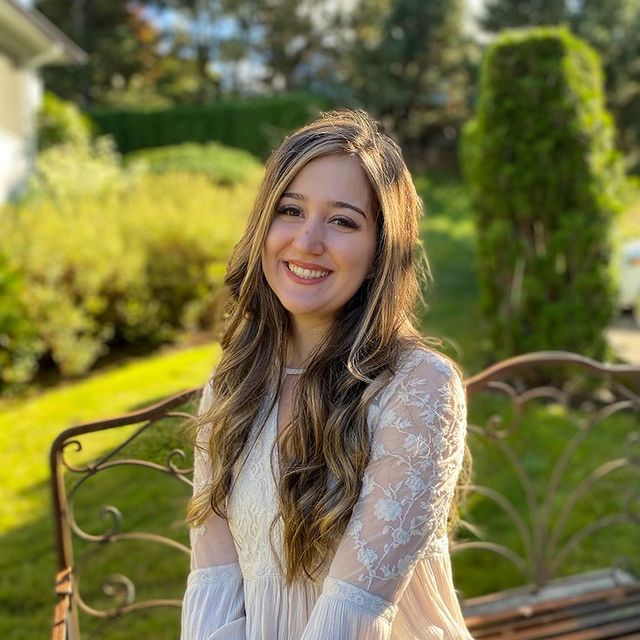
Isabelle St-Martin
I am a Master of Science student in Medical Physics at UBC. My research area is radiation oncology physics at BC Cancer under the supervision of Dr. Cheryl Duzenli. We are developing novel ways of treating cancer with radiation, with the goal of increasing tumour control, decreasing side effects, and improving quality of life.
How did you decide you wanted to go to grad school?
I love being a student. After completing my Bachelor of Science degree in Biology, Physics, and Mathematics, I knew the degree would not be my last. I was inspired by my undergraduate research experiences, and I wanted to explore how the interplay of biology, physics, and math are shaping the future of medicine.
Why did you choose to study at UBC?
UBC was my first choice. Their CAMPEP-accredited medical physics program had everything I wanted. I was already familiar with BC Cancer from my undergraduate thesis, and knew that with the quality of clinical research and the quality of people there, I wanted to stay. I made sure to speak with several current graduate students about their experiences in the program, which confirmed it would be a perfect fit. Lastly, I love Vancouver – the city, the mountains, and the ocean make it hard not to.
What was the best surprise about UBC or life in Vancouver?
I was not expecting to connect so well with so many new people, both in physics and beyond. UBC has a vibrant community of people with a broad range of experiences. It makes it easy to feel like home. I have tried new things, learned a lot, and met so many wonderful people that I am now happy to call dear friends.